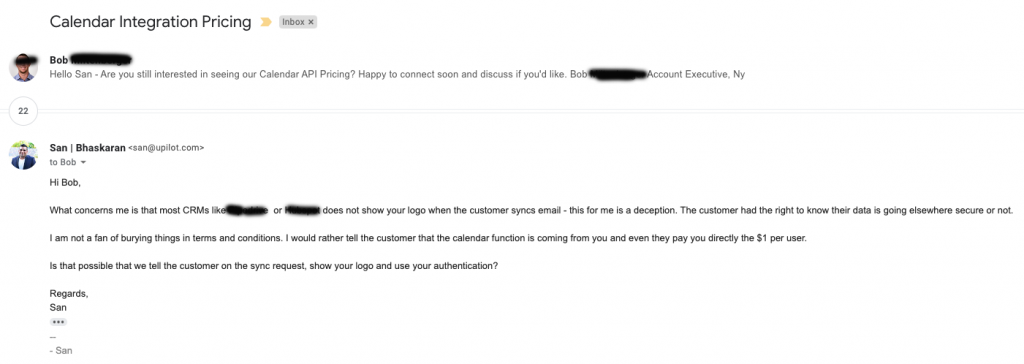I had just sold my first business and decided to build the 2nd company which was in healthcare and I had thought has the potential to be a $100M company.
I was sitting down with a lab technician from a private hospital in India, we were about to make a new equipment section inside our medical websites, and I wanted to hire someone for that area and learn more.
So why do you want to work behind a desk and not in a hospital?
This is a standard question I asked at that time that often gave me a lot of insights.
I do not like what goes on in these places was the answer.
Explain. I probed.
I will give you an example. he continued. Do you know Balloon Angioplasty? it is a very costly procedure, and patients are charged from anywhere between 100,000 to 500,000 rupees to do this.
They often reuse a stent from an earlier patient, not just once – multiple times.
Hmm.. and what does the patient say?
He is asleep, under anesthesia. He will never know.
Hmm.. that’s unethical, what is the real problem?
The problem is that the balloon does not expand with the same force the 2nd, 3rd, 4th time it is used to redo the procedure again in a few years!
At that point, I have heard enough stories to decide not to go deeper into that business at all. I returned my contract with GE healthcare who was our partner at that time.
I moved to Paris, took a 2-year break, learned to fly, and moved into software product development.
I promised myself that we would never deceive the customer, do no harm, tell them the truth, etc. Basic human principles.
Surely software industry could not be as bad as healthcare.. I reasoned. I was Naive.
Fast forward many to 2 years ago, we are slow to market – our competitors are churning features after features, but there is only one problem. Most of these features the competition uses are API calls to other companies selling their solution under the hood.
So when you sync your emails, you do not see it, but the data is going somewhere else, and the CRM companies pay a tiny sum of $1 or less per user.
I even wondered why Google and Microsoft let these deceptions happen at massive scales.
We decided not to use this route because it is dishonest, showing our logo when asking for permission to sync but having the data go somewhere else, so we built the whole thing ourselves.
It cost us a fortune, both in terms of money and time and the customers mostly do not seem to care, convenience over having to authorize the app manually, etc.
Fast forward to 3 months ago. We did a survey, and the most requested feature is a calendar.
Calendars are hard. It may be a six-month project with so many things that can go wrong especially the draggable options, sync from multiple sources, etc.
Again we can do it in one day if we use the APIs route. So I connected with the company behind these features of most modern CRMs of course, we can help. It will be $1 per user and it goes down after a certain number of users!
This is too good to be true!
Now comes the real test. I am doing this for years now. The people with me are beginning to push me to grow faster. We want to scale quickly. Here is the option in front of us that will solve the issue in $1 and one day!
What do we do, take the risk of losing some customers and build taking months but protecting the customer and their data?
It is easy to play the hero when the stakes are low, but making the right decisions can be hard.
Then I decided to try a different angle, what if we are transparent about the calendar integration to the customers?
After 22 email exchanges, I asked them whether we can reveal our customers’ truth and do the calendar sync with them. It is only calendar data, not email, which we spent a fortune to manage ourselves.
we want the customers to know that the calendar is coming from a 3rd party and their calendar date will go to them if we take the API route.. so this is my latest email to them.
Let us see if they accept our proposal to be transparent. I hope they agree, if not, will do it in-house, we might lose some customers because people want things fast in today’s world, so be it.
We are here for the long game.



Related Posts: